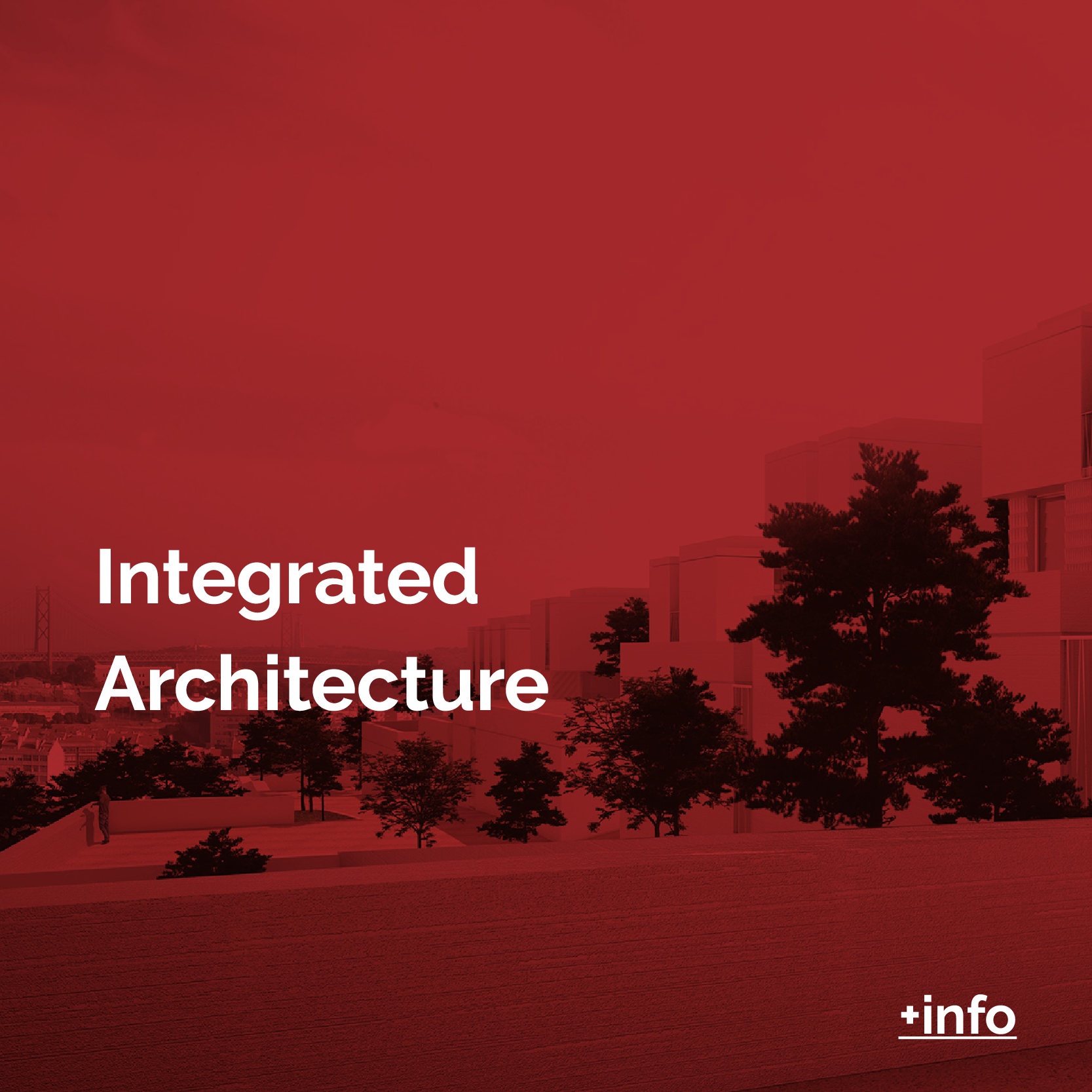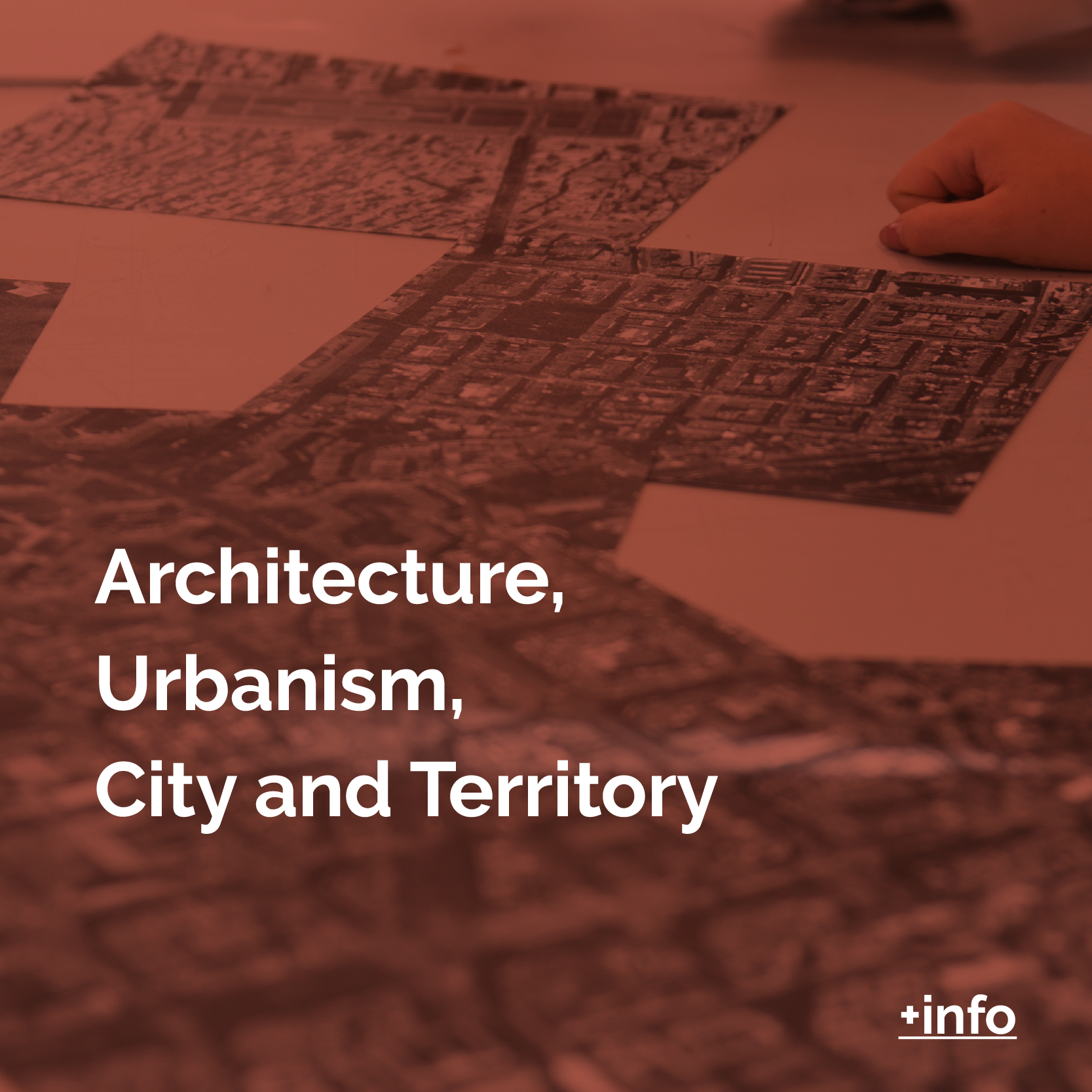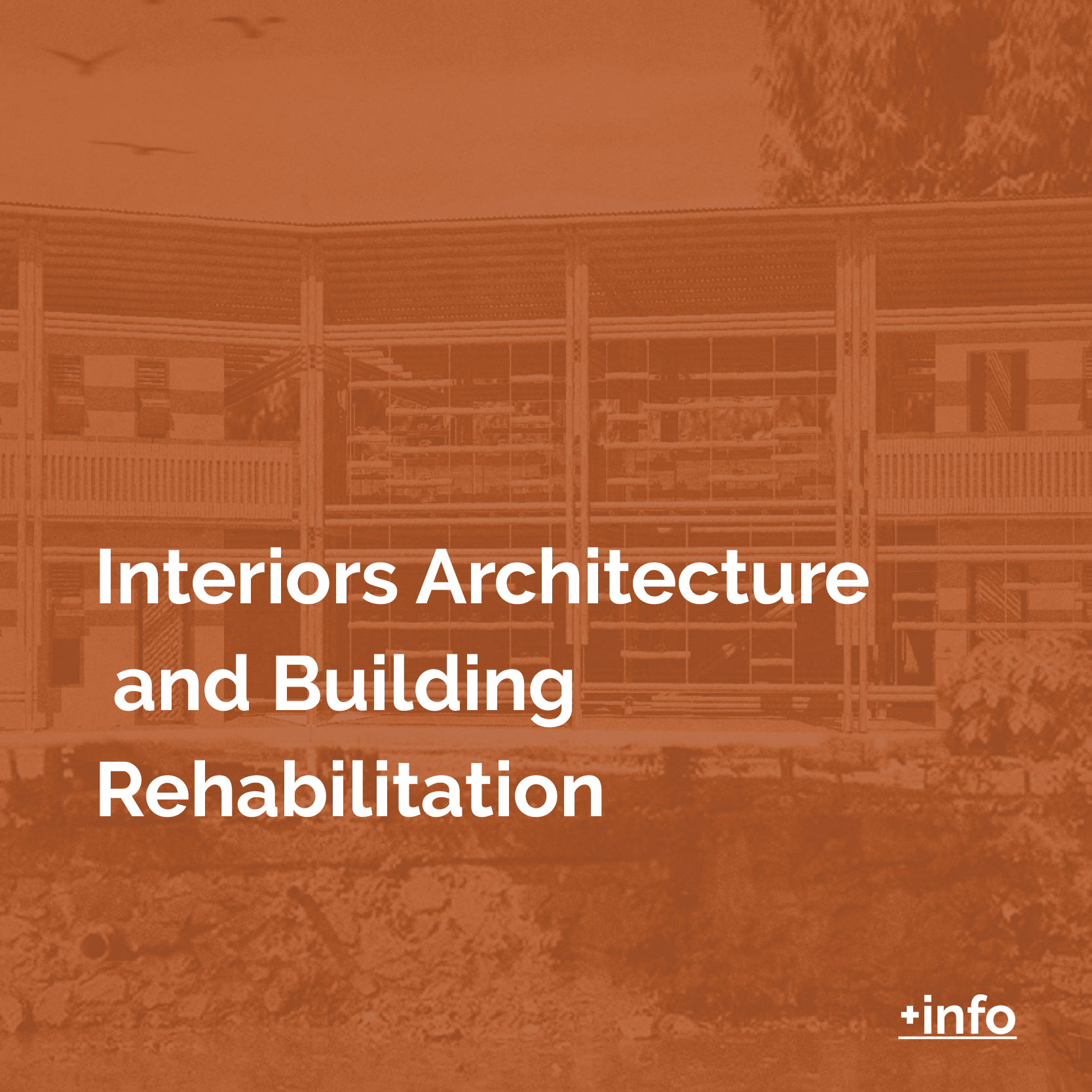
Integrated Master in Architecture
Specialization Profiles
Upon completion of the 1st Cycle of Studies of the Integrated Master in Architecture, there is the possibility of choosing between the three specialization profiles:
Integrated Architecture | Urbanism, City and Territory | Interior Architecture and Building Rehabilitation
Check HERE the available applications
The degree of Master if given to those who demonstrate the capacity for understanding and resolution of problems in new situations that are not familiar. Inserted in broad and multidisciplinary contexts, this degree provides the capability to solve problems linked to architecture and urbanism, that is: the capacity to integrate knowledge, to deal with complex questions, to develop solutions or give informed judgements in situations of limited or incomplete information. Diverse reflections about the implications, ethical and social responsibilities will result from those solutions, judgements, and constraints. The ability to communicate knowledge, thought process and conclusions unambiguously to populations stems from that enlightening capability of owning competences, that allow future masters in architecture to carry out an autonomous learning throughout life.
The study is destined to all that seek to practice thinking and projecting the built space and its relationship with man.
Upon the approval of the Final Master Project, or Dissertation, or Internship, the masters in architecture acquire the status of professional architects, being habilitated to exercise the profession in a liberal way or in industry, commerce, education, research or in central, regional and local administration.
They also acquire the right of access to the Portuguese Architects Association.
Architects prepared for the conception, rehabilitation, and remodeling of buildings, sets of buildings, public and urban spaces, landscape and territory. The scope of their activity encompasses distinct functions that range from housing, to public and private services, culture, education, health, sports or industrial equipment.
Facing the challenges of the contemporary world, we prepare professionals that are capable of positioning themselves in a professional and disciplinary territory that demands a constant redefinition of the scope and nature of their intervention.
The teaching staff of the Integrated Master in Architecture with Specialization in Interior Architecture includes professionals with a vast experience in project, as well as teachers from the other curricular areas present in this training that teach the specific contents to each curricular unit in an integrative perspective and articulated by a global view of the course and competences to be acquired.
1st Year Coordinator: Professor Jorge Cruz Pinto;
2nd Year Coordinator: Professor João Pedro Costa;
3rd Year Coordinator: Professor Jorge Spencer.
- 2nd Cycle Specialization Profile in Integrated Architecture: Professor Pedro Rodrigues (pr@fa.ulisboa.pt)
1st Year Coordinator: Professor Hugo Farias;
2nd Year Coordinator: Professor Pedro Ravara.
- 2nd Cycle Specialization Profile in Urbanism, City and Territory: Professor Carlos Dias Coelho (diascoelho@fa.ulisboa.pt)
1st Year Coordinator: Professor João Leite;
2nd Year Coordinator: Professor Luís Carvalho.
- 2nd Cycle Specialization Profile in Interiors Architecture and Building Rehabilitation: Professor João Pernão (jnpernao@fa.ulisboa.pt)
1st Year Coordinator: Professor João Pernão;
2nd Year Coordinator: Professor Dulce Loução.
The Lisbon School of Architecture provides its students with a wide set of spaces to support academic life in its diverse stages, including: the library, the reprography, the ‘espaço 24 horas’ (24-hour space, where students can develop their work), the editorial centre, the multimedia office, the photography and videography studio, the cartography and media library, the computing centre (CIFA), the fashion design sewing atelier, the workshops, the rapid prototyping lab (LPR), the colour lab (LABCOR), the photography and synthesis image lab (LAFIS), the 3D scanning lab, the intellectual property and knowledge transfer office, and the School’s incubator.
FA.ULisboa professors have promoted Open Classes and Conferences of broad interest to the academic community.
View the latest editions HERE.
DGES accreditation and registration:
Integrated Master in Architecture
Initial registration: R/A-Ef 1822/2011 of 03-18-2011
Change records: R/A-Ef 1822/2011/AL01 of 20-04-2018
Integrated Master in Architecture Specialization in Interiors and Building Rehabilitation
Initial registration: R/A-Ef 1823/2011 of 03-18-2011
Change records: R/A-Ef 1823/2011/AL01 of 22-09-2014 | R/A-Ef 1823/2011/AL02 of 08-18-2016
A3ES
Dispatch of the Integrated Master in Architecture, in the Specialization Area in Architecture/ in the Specialization Area in Urbanism - Dispatch n.º 4723/2018 of May 14, 2018: Check the results HERE
Integrated Master in Architecture in the area of specialization in Urbanism: Check the results HERE
Integrated Master in Architecture with specialization in Interiors and Building Rehabilitation: Check the results HERE
Note: Awaiting publication for the year 2023.
Ranking of the Universidade de Lisboa (ULisboa)
Architecture at the Universidade de Lisboa (ULisboa) gained enormous prominence at the international level by being positioned among the 12 best Universities in the world and among the 6 best in the European Union, in the international ranking SCImago Institutions Rankings (SIR) (2023).
1st Place in Portugal in the Main Rankings: SCIMAGO, ARWU, NTU, CWUR, URAP, CWTS-LEIDE (2022) Link





